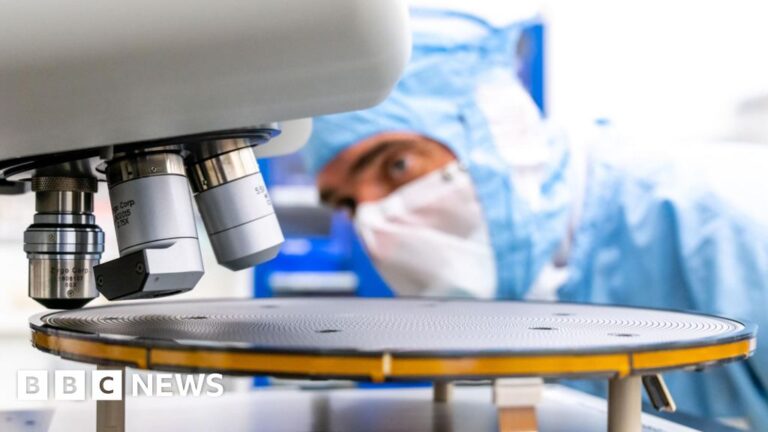Technology stocks around the world have fallen on concerns about the global computer chip industry.
The selloff came after a report that the Biden administration may be poised to further tighten restrictions on semiconductor equipment exports to China.
Comments by former US President Donald Trump that Taiwan, the world’s largest chipmaker, should pay for its own defence have added to concerns.
In the United States, the tech-heavy Nasdaq index closed down 2.7% on Wednesday, while chip stocks also fell in Europe and Asia.
“Regardless of the outcome of the election… I think we will see the United States increase some restrictions,” said Bob O’Donnell, chief analyst at TECHnalysis Research.
“But how far will they go? That’s the big question.”
In Asia, chipmaker TSMC fell 2.4% on Thursday, while semiconductor equipment maker Tokyo Electron fell about 8.8%.
This comes after Nvidia closed down 6.6% in New York on Wednesday, while AMD lost more than 10%.
In Europe, shares of ASML, which makes chipmaking machines, fell nearly 11%.
The drops come after Bloomberg News reported Wednesday that the U.S. government is preparing to impose its toughest restrictions yet on China’s semiconductor manufacturing equipment if companies like ASML and Tokyo Electron continue to give the country access to their advanced chip technology.
ASML declined to comment when contacted by the BBC. Tokyo Electron did not immediately respond to a request for comment.
The BBC also asked the US Commerce Department for a statement.
The Biden administration has already taken steps to restrict China’s access to advanced chip technology.
In October, it restricted exports to China of advanced semiconductors used in artificial intelligence (AI) technology.
Mr Trump’s comments on Taiwan also point to a possible disruption in the global supply of microchips.
Taiwan produces most of the world’s advanced chips.
“Investors always react to any remarks coming out of the United States, but despite these comments, the long-term business trend in the semiconductor industry is clearly upward,” said Marco Mezger, executive vice president at memory chip technology company Neumonda.


